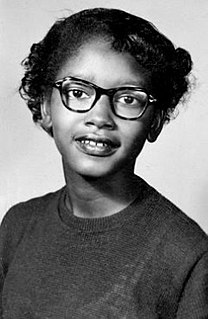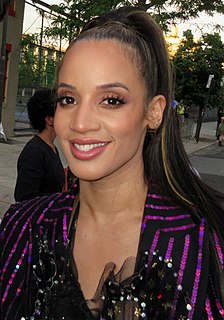A Quote by Kimberle Williams Crenshaw
There are many, many different kinds of intersectional exclusions - not just black women but other women of color. Not just people of color, but people with disabilities. Immigrants. LGBTQ people. Indigenous people.
Related Quotes
Sex workers are the last women police stand in to protect. Sex workers are the last people that room is made for in many ways. You get a different kind of feminism if you put people at the margins at the center. It's a recently resonant lesson, but black feminists have been saying this for decades. Now when I talk to people engaged in sex workers' rights advocacy and people who identify as intersectional feminists, this is the air they breathe. We can't just make feminism about improving the lives of all women. Because there is no such thing as all women and universal female experience.
There is a beautiful expression in Nicaragua: "struggle is the highest form of song". I love that. We are in the struggle. It's like a river. Once you step into it you become the river. It's not, you go out and click on a couple of charities that you believe in, march in the Women's March, and you're done. Struggle becomes your life, transforming a paradigm that is based on domination into a paradigm of co-operation. Fighting for the liberation of women, of people of color, of indigenous people, of lgbtq communities. Fighting to protect immigrants and assuring the safety of refugees.
White people don't have that problem, they get to go through life never having to fit into a box, and it's really more so true for white men because even just being a woman, you sort of have to walk around other people's assumptions of you and it's so exhausting and there's a sense, especially among young people of wanting to just live your life, not having to wear the weight of that pressure - pressure that people of color feel, that gay people of color feel, that women of color feel.
Katherine Johnson never complained, it just was what it was. She just said, "I just wanted to go to work and do my numbers." And she stopped right there. I think about that as a Black woman in Hollywood when I'm asked about diversity. I hate when people say diversity because the first thing you jump to is Black and white. When you talk about diversity, you're talking about women being hired in front of and behind the camera. You are talking about people with disabilities, the LGBTQ community...so I hate when people think about diversity.
Radical militant feminist believes that women of color and Black women in particular have written the cutting edge theory and really were the individuals who exploded feminist theory into the directions that has made it more powerful. So I see us as the leaders not just of Black people and Black women in terms of feminism but in terms of the movement as a whole.
That's just like America. It's made up of lots of different people. We're all different colors, different ages, we do different jobs -- but it takes all of us black people, white people, brown people, men and women, young and old, working in the factories, working in the fields, working in offices, working in stores -- it takes a lot of different kinds of people to get the job done for America.





































